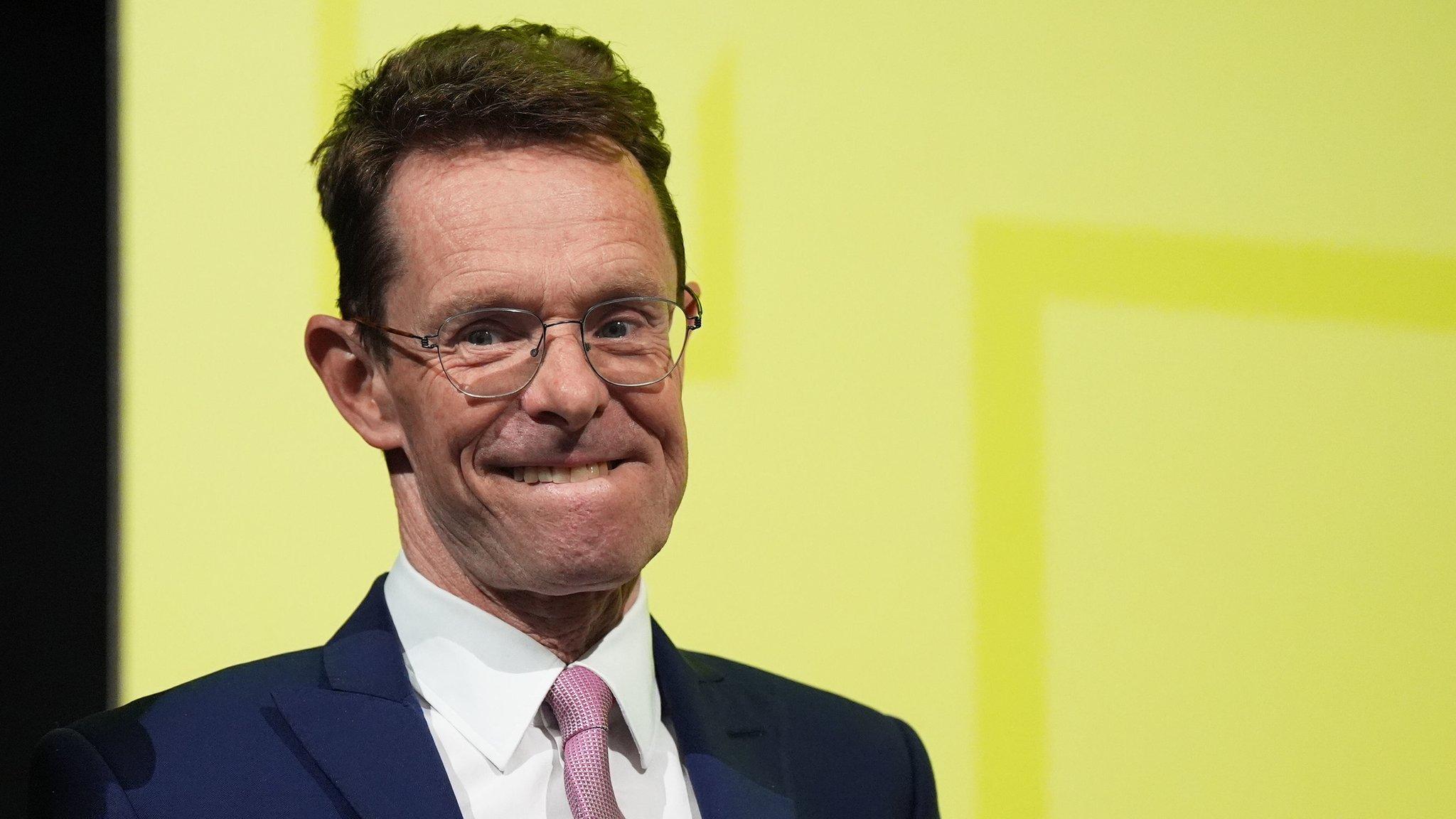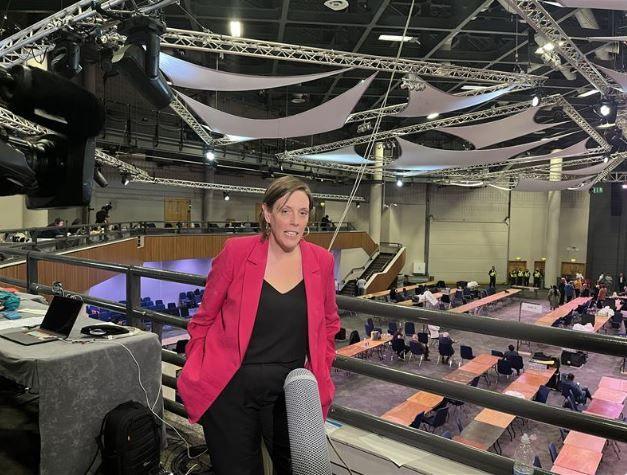Why did Muslims in Birmingham turn away from Labour?
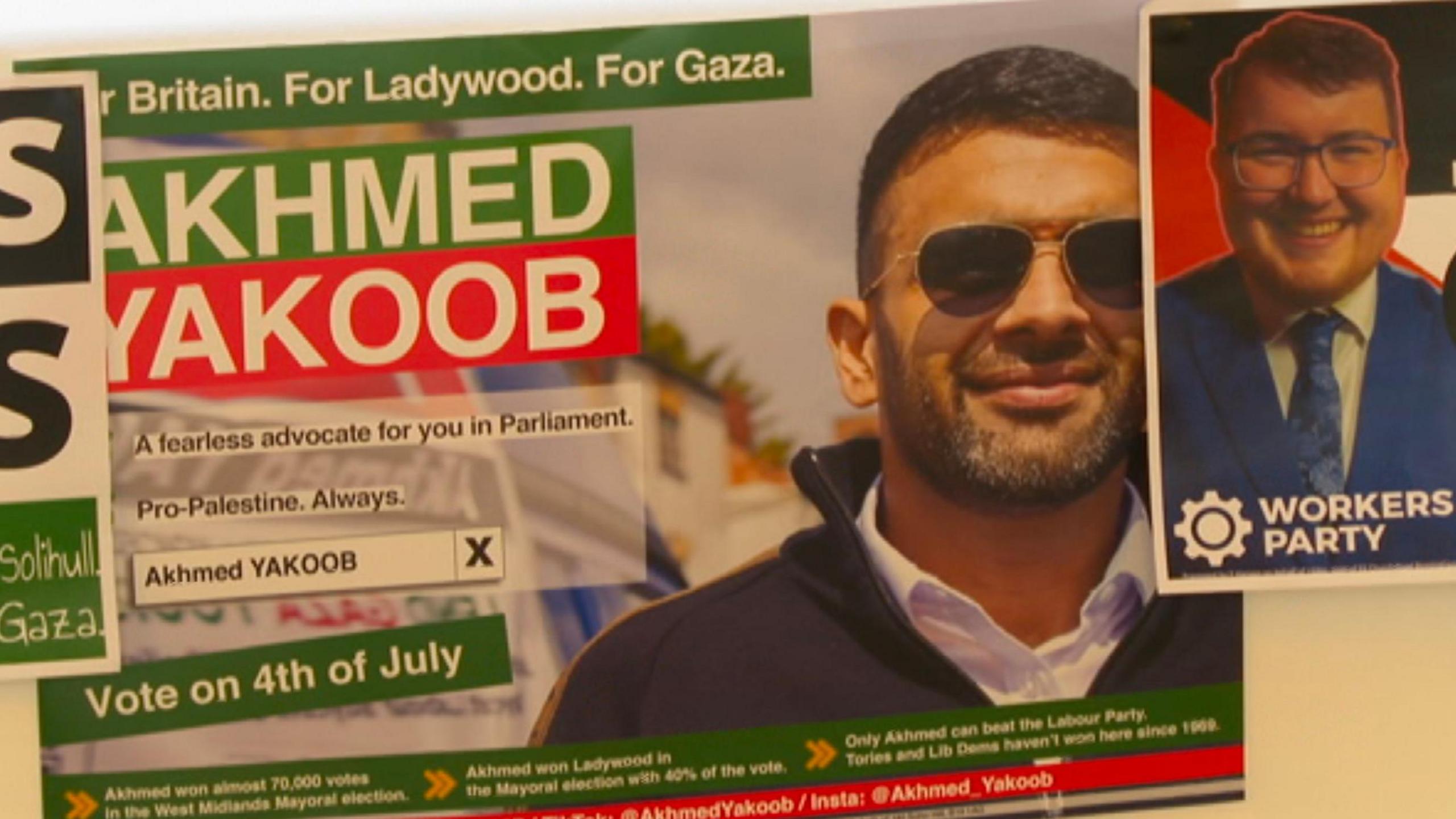
General election candidates Ahkmed Yakoob and James Giles stood on a pro-Gaza platform in Birmingham
- Published
An obvious police presence, chants of ‘shame on you’ and threats to remove members of the public.
This wasn’t a protest. This was supposed to be a standard general election declaration - where the most eye-catching thing you can usually hope to see is a glimpse of a candidate dressed as a bin or wearing a baked bean balaclava.
But it was the rise of a different kind of alternative candidate which caught the eye in Birmingham.
On a night Labour was cruising to victory nationally, huge Labour majorities in the second city were being slashed, and even overcome, by independents.
The scenes at the ICC were the culmination of six weeks of campaigning described as “gruesome” by Labour’s Yardley MP Jess Phillips.
There have been complaints to the police and claims of intimidation.
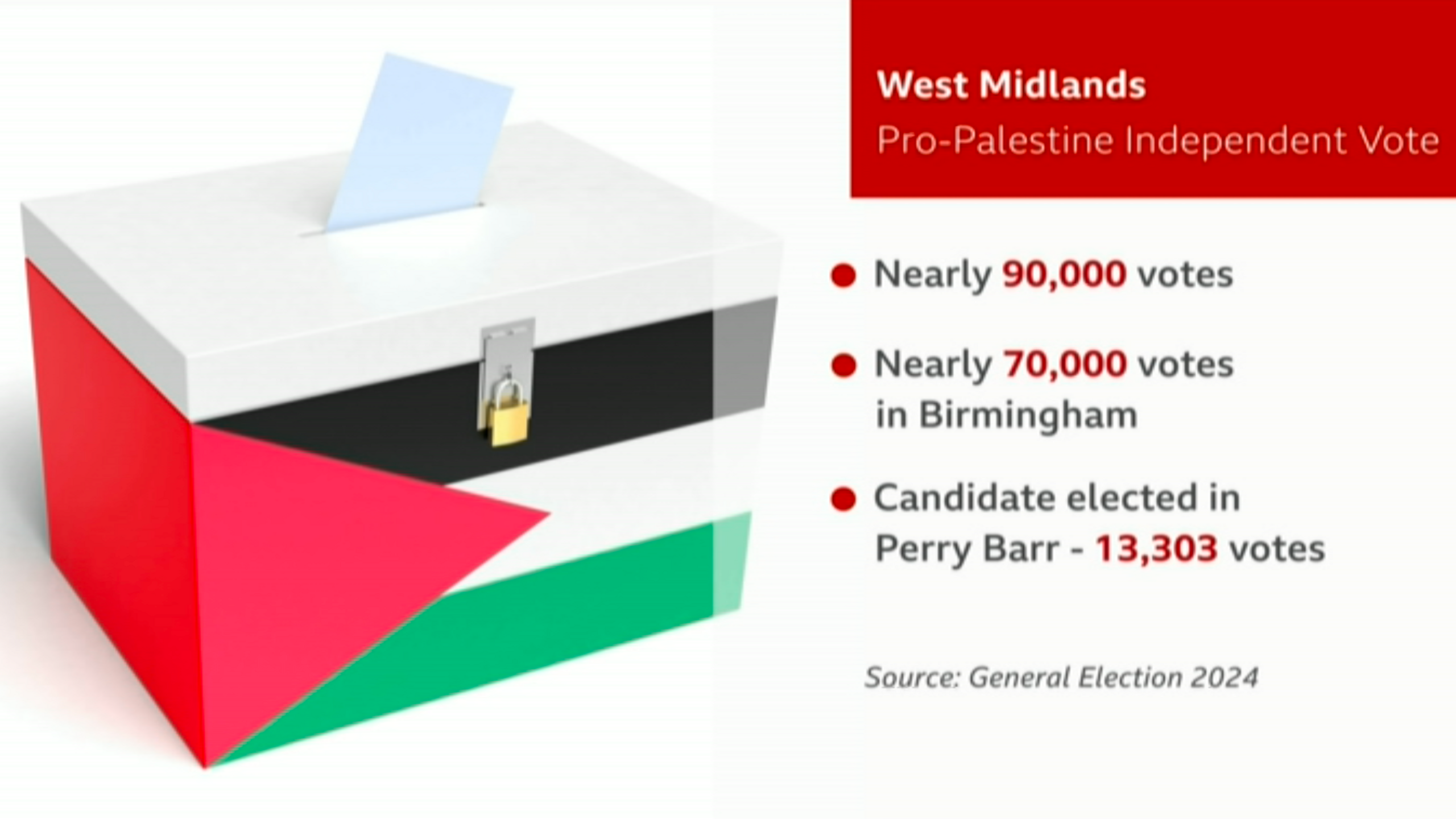
Nearly 90,000 votes were cast for pro-Gaza candidates across the West Midlands
So what happened in Birmingham? Why did Labour struggle here while independent candidates thrived, and why is there so much anger?
In the run up to the election, political commentators – and I include myself - have probably been guilty of oversimplifying the issues in Birmingham, describing independents and Workers Party candidates in the city as campaigning on a “Gaza platform”.
That is true, but there are other, important reasons for the strong performance of those candidates.
Ayoub Khan was the big independent winner of the night, overturning a 22,000 Labour majority to become the independent MP for Perry Barr.
Speaking outside the House of Commons this week, he acknowledged that Gaza was the “prime factor” in his election.
But he also hit out at what he believes is the neglect of areas like Perry Barr.
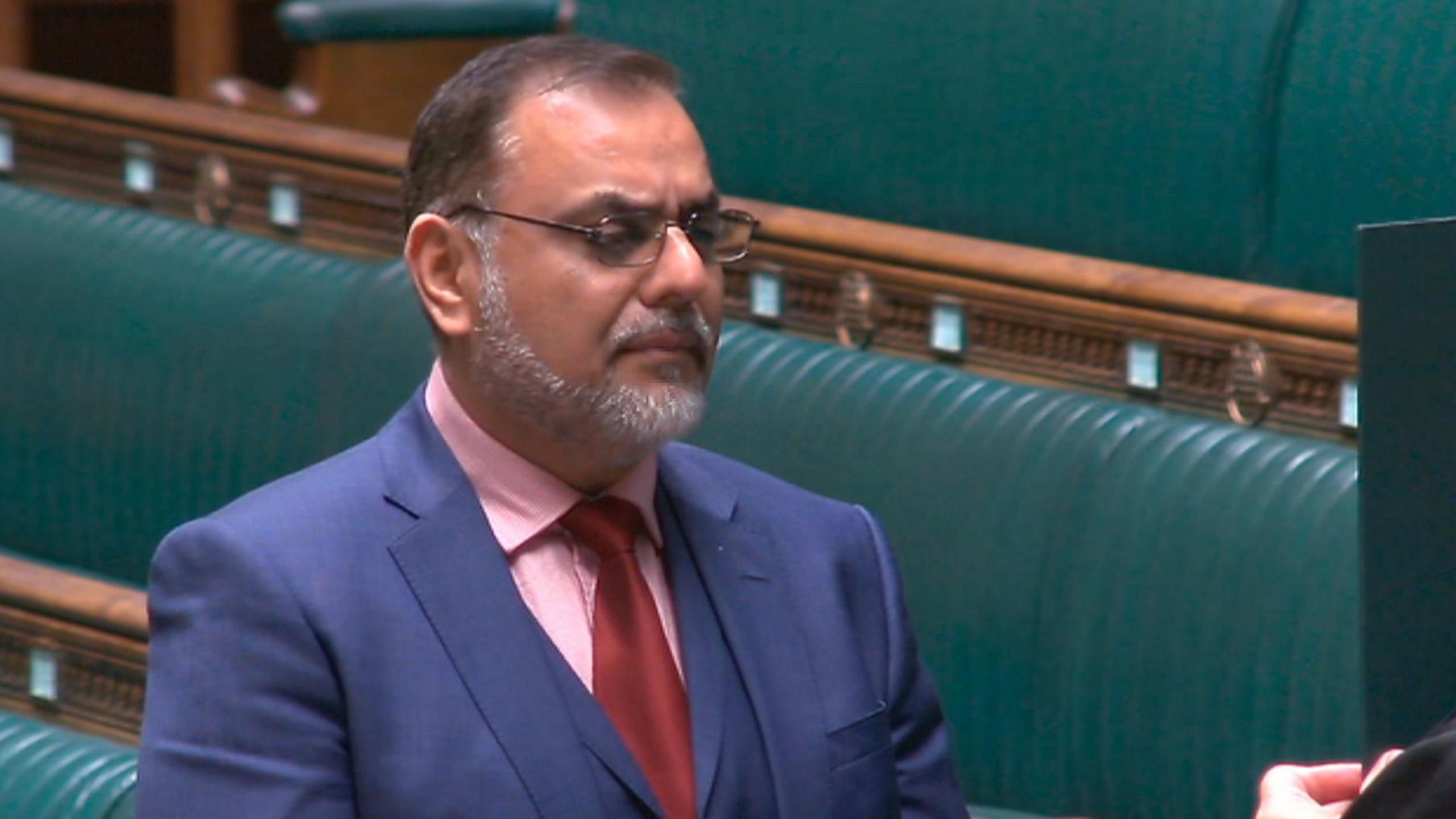
Ayoub Khan, Independent MP for Perry Barr, is sworn in at the House of Commons
He said: “There’s many issues in the Perry Barr constituency, stemming from homelessness to fly tipping, anti-social behaviour.
“We have some of the highest levels of deprivation, cost of living. So I think all of those factors combined created a tsunami that resulted in my victory.”
And this is a message repeated by those living in ethnically diverse areas with large Muslim populations, overseen by Labour MPs and a Labour council. They feel taken for granted, ignored.
People here have lived under a Conservative government for 14 years, but some have had Labour MPs for decades – and a Labour-led council for 12 years. A council which recently hiked council tax by 10% and cut services.
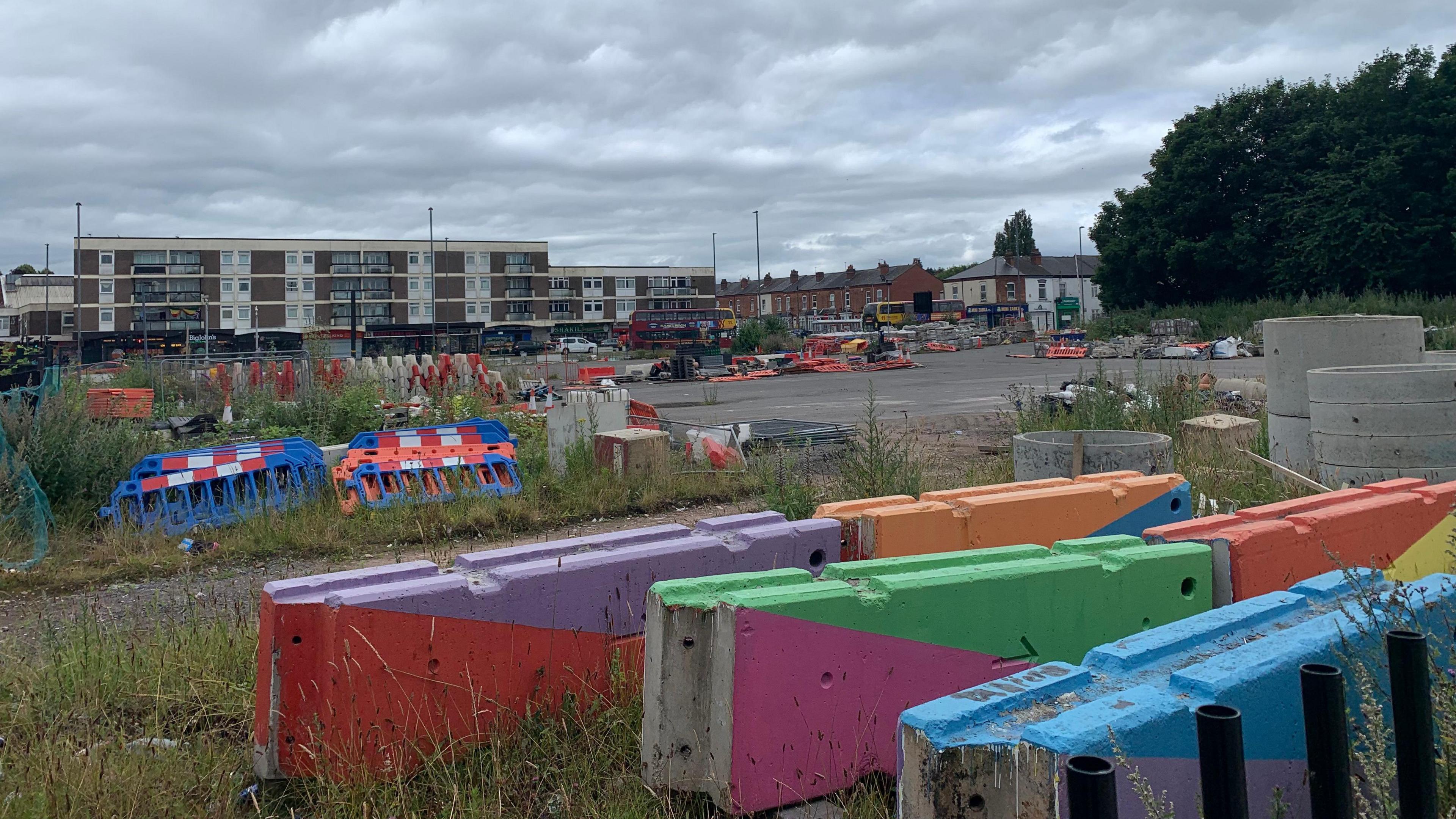
Land in Perry Barr remains undeveloped despite hopes the Commonwealth Games would regenerate the area
In Perry Barr there’s a visual reminder of the council’s under-performance.
Land around the railway station remains undeveloped and flashy apartments, heralded as a legacy of the 2022 Commonwealth Games, remain empty.
While visiting the area I spoke with Roshan Dass, postmaster of Perry Barr post office.
He complains about the anti-social behaviour in the area, his shop regularly visited by shoplifters. What appears to be drug dealing in the area comes to a halt as we turn on the camera for an interview.
Asked why people turned against the main parties at this election, he said: “They are frustrated - no jobs, benefits cut.”
He added: “Nothing has been done here, I’ve been here 43 years and I’ve never seen this area as bad as what it is now.”
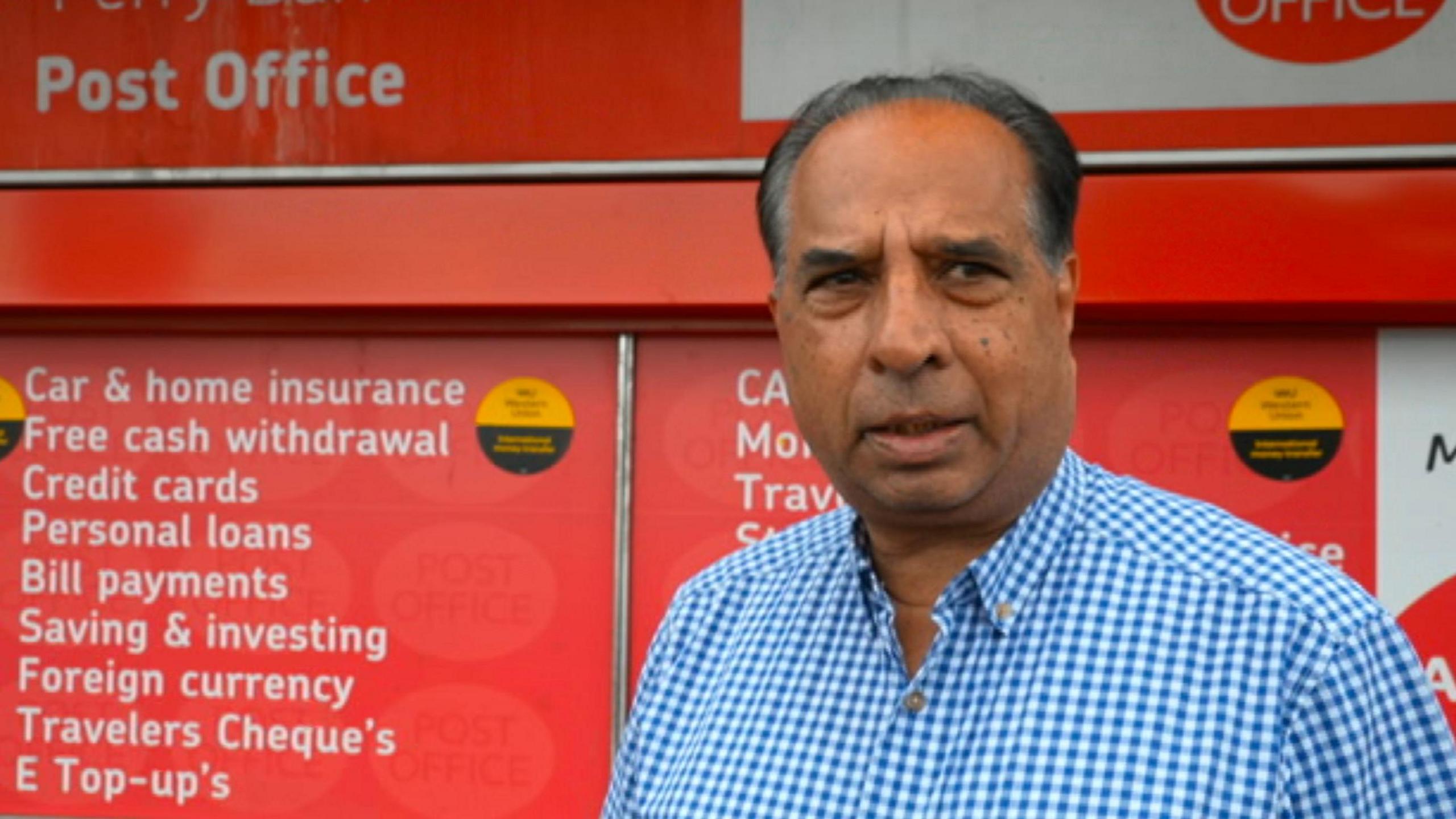
Roshan Dall, postmaster at Perry Barr Post Office
And that feeling of under-representation is what appears to be at the heart of this election story: the rise of the alternative candidates, and the anger surrounding it.
Jody McIntyre narrowly lost to Jess Phillips in Birmingham Yardley but plans to carry on being a voice for communities he says are not represented by the mainstream parties.
He described the Conservatives and Labour as “two sides of the same coin” and added: “There’s something really particular to Birmingham that on a local level, as well as a parliamentary level, Labour are really failing communities here.”
Speaking after holding onto her seat, Jess Phillips defended Labour.
She said: “The fact of the matter is my constituents will be way better off under a Labour government… but we have to prove that.”
She also hit out at the nature of the campaign: “It’s been one of the worst election campaigns I’ve ever stood in.”
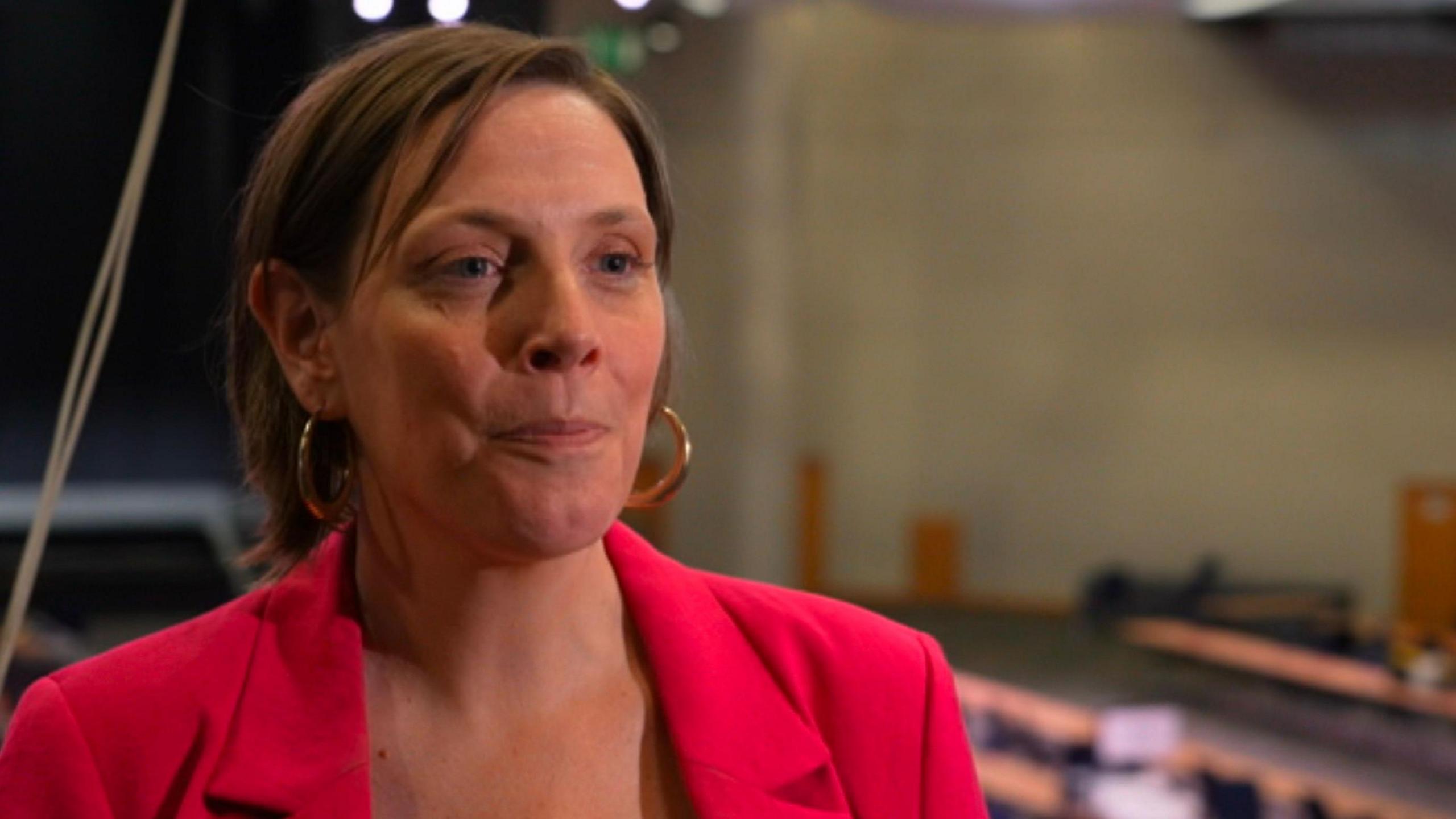
Jess Phillips, Labour's Birmingham Yardley MP
Both Jess Phillips and the outgoing Labour MP for Perry Barr, Khalid Mahmood, made complaints to West Midlands Police during the campaign.
A campaigner’s tyres being slashed and intimidation at polling stations are among the claims, although no arrests or charges have been made.
A statement from the force said: “Our officers are aware of a number of incidents leading up to the election where people have reported criminal damage and harassment, and we are carrying out enquiries to identify those responsible.”
Both Ayoub Khan and Jody McIntyre have denied their campaigners have overstepped the line and both condemned any criminal conduct.
Mr McIntyre has also claimed he was the victim of online abuse which mocked his disability during the campaign.
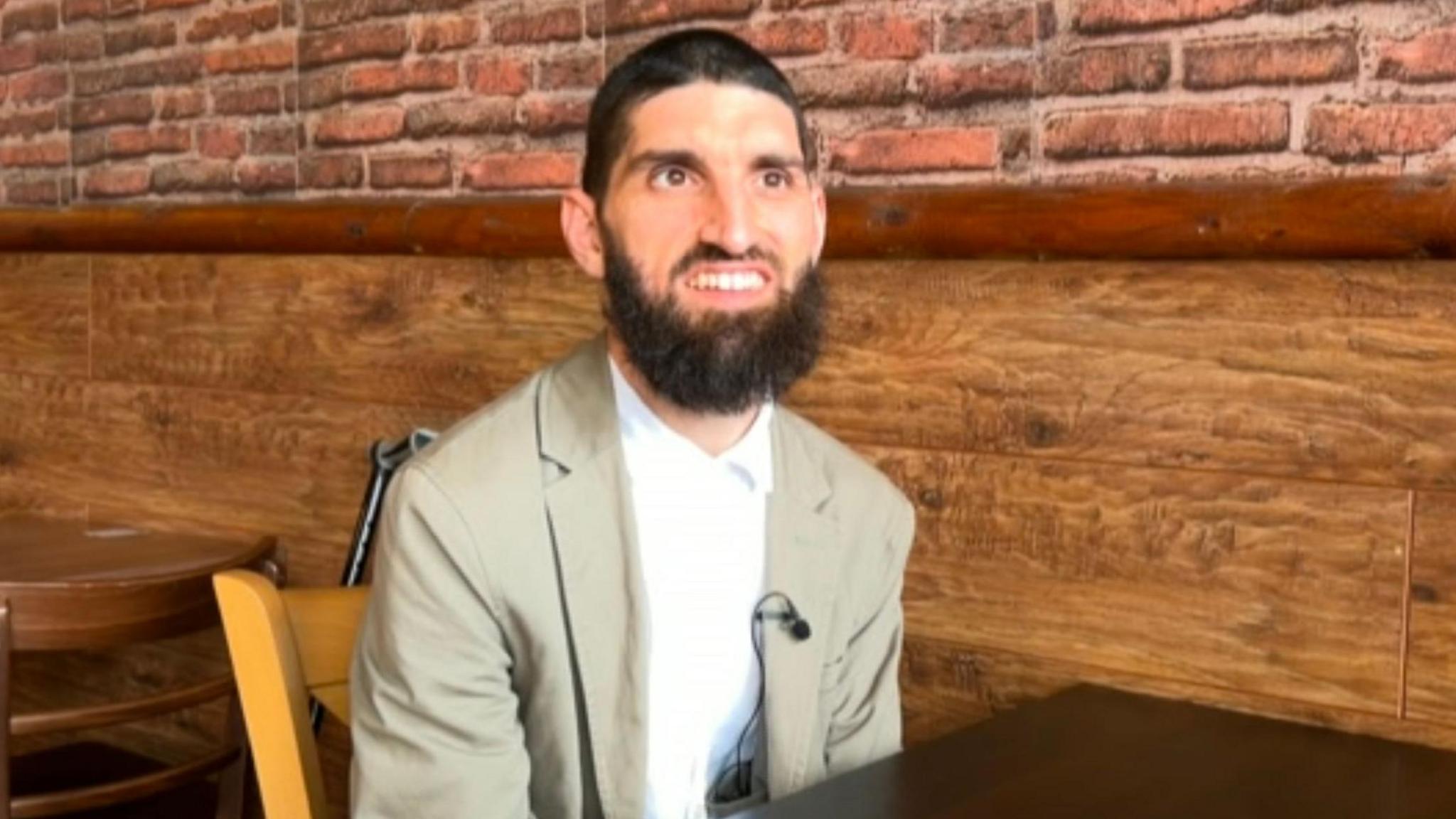
Jody McIntyre, Workers Party candidate at the 2024 general election in Birmingham Yardley
Asked if the legacy of this election was division, Jody McIntyre said: “I believe that we had a unifying campaign that engaged all sections of the community and will continue to engage even more people.
“Political issues will cause division. Because people have different opinions. There’s nothing wrong with division so long as it doesn’t lead to abuse or personal mudslinging.”
It’s a little under two years until the next local council elections in Birmingham. But, based on the general election, it looks as if the alternative candidates will have a significant influence on Birmingham’s politics for some time to come.
Follow BBC West Midlands on Facebook, external, X, external and Instagram, external. Send your story ideas to: newsonline.westmidlands@bbc.co.uk, external
- Published5 July 2024
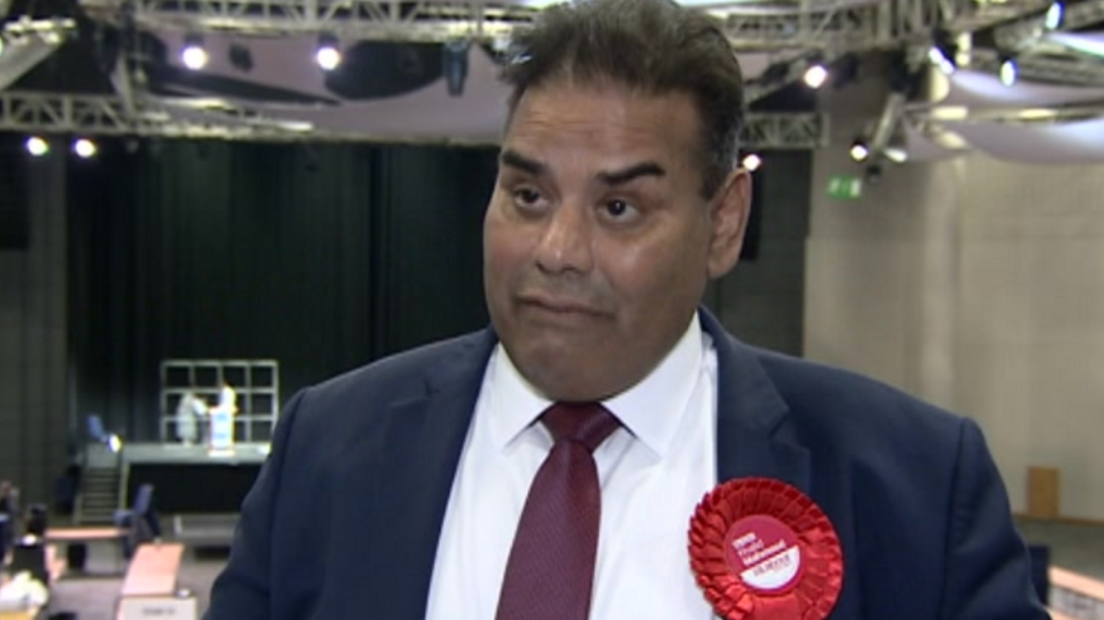
- Published5 July 2024
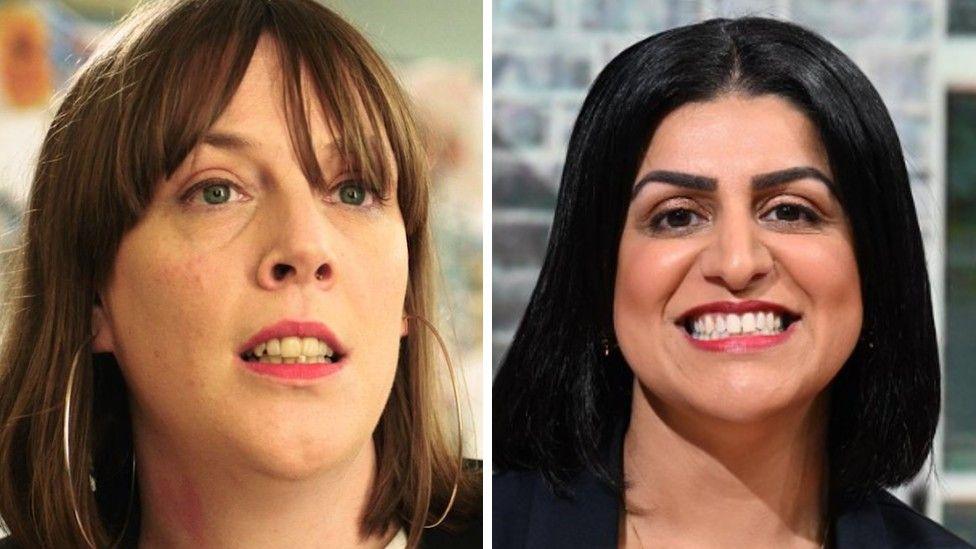
- Published5 May 2024
